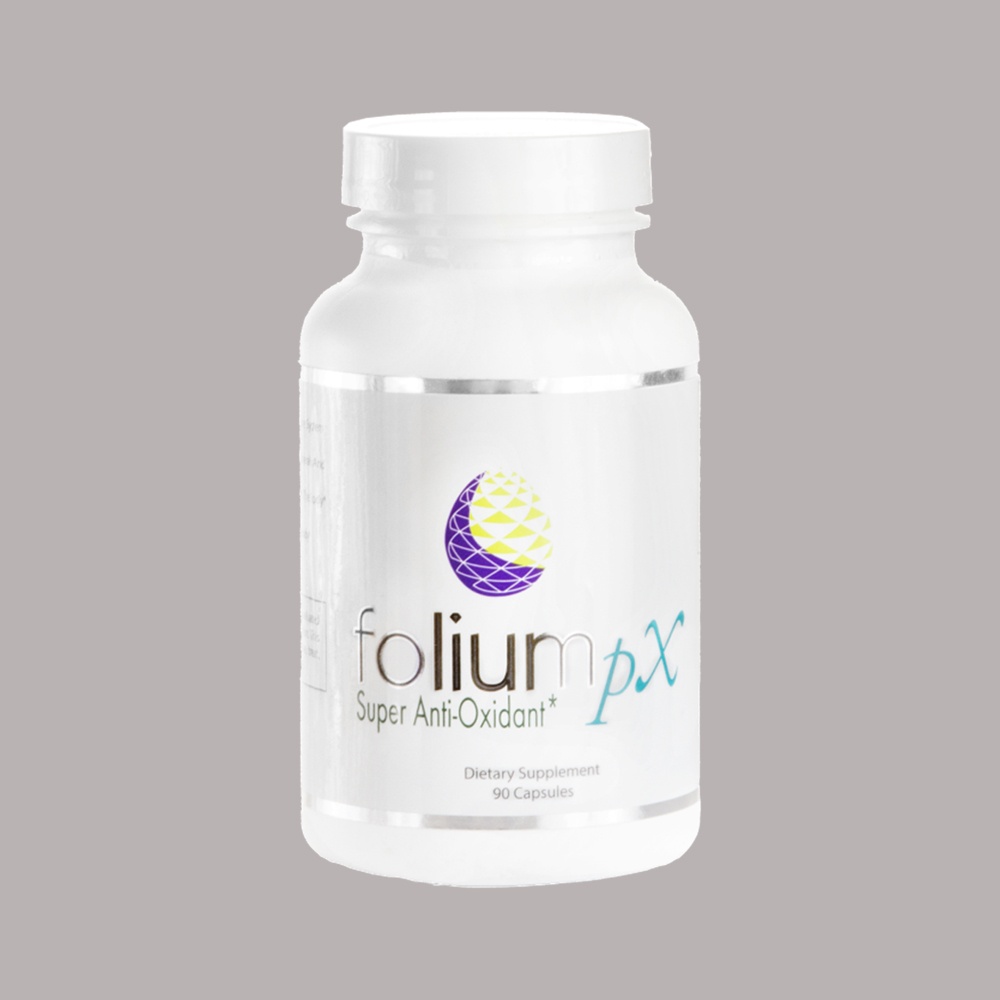Cellular detoxification is critical for maintaining optimal health, as modern life exposes our bodies to countless toxins. These contaminants arise from industrial pollution, processed foods, chemical-laden household products, and chronic stress. Over time, they can strain our cells, leading to diminished energy, weakened immunity, and chronic illnesses. While many detox regimens focus solely on the digestive system, true detoxification must reach every cell in the body to address the full spectrum of toxins.
Folium pX, a natural supplement celebrated for its super-antioxidant properties, supports deeper detox by combating oxidative stress and aiding in the removal of heavy metals. Yet genuine cellular detox requires more than supplementation. A combination of nutrient-rich foods, healthy lifestyle habits, and targeted support can maximize the body’s ability to remove harmful substances. By understanding how cells detoxify—and implementing proven strategies—you can boost vitality, sharpen mental clarity, and enhance overall well-being.
This article explores the mechanisms of cellular detoxification, dietary and lifestyle practices that encourage thorough cleansing, and the role of Folium pX in helping individuals achieve and maintain optimal health.
Key Takeaways
- Cellular detoxification is essential for removing accumulated toxins that can lead to fatigue, weakened immunity, and chronic health issues.
- The body’s detox systems rely on multiple organs, including the liver, kidneys, and lymphatic system, as well as cellular antioxidants like glutathione.
- Diet and lifestyle choices play a crucial role, with antioxidant-rich foods, proper hydration, regular exercise, and stress management supporting natural detox pathways.
- Reducing toxin exposure—by choosing cleaner foods, using natural products, and purifying air and water—helps minimize the body’s detox burden.
- Folium pX enhances cellular detox by neutralizing free radicals, aiding heavy metal removal, and supporting overall vitality when combined with healthy habits.
Your body is constantly detoxing, but modern toxins make it harder than ever. Support deep cellular detox with antioxidants, hydration, and stress management. A cleaner body means clearer energy and a sharper mind.
Understanding Cellular Detoxification

The Role of Cells in Detoxification
Cellular detoxification involves multiple systems. The liver converts harmful substances into forms the body can expel, the kidneys filter toxins through urine, and the lymphatic system transports waste away from tissues. At the cellular level, detoxification means neutralizing or eliminating free radicals, heavy metals, and chemical byproducts that compromise function. When cells can efficiently remove these substances, energy levels rise and overall vitality improves.
Beyond these organ-specific actions, each cell relies on enzymes and antioxidants to handle daily metabolic byproducts. Keeping these microscopic processes running smoothly is essential for maintaining balanced pH levels and proper mitochondrial activity, which directly affect energy production.
Common Sources of Cellular Toxins
Toxins originate from a multitude of sources. Heavy metals, pesticides, and industrial chemicals can contaminate air, water, and foods. Processed or fast foods may harbor artificial additives or excessive sugars that burden detox pathways. Everyday products like cleaning solutions, cosmetics, and plastics introduce additional chemicals. Chronic stress and inadequate sleep also weaken immune responses, undermining the body’s innate detox processes. Identifying and minimizing these exposures is a foundational step in any detox plan.
Consequences of Toxin Accumulation
When toxins accumulate in cells, energy production falters, often resulting in persistent fatigue and sluggishness. The immune system can be compromised, leaving the body more susceptible to infections and inflammation. Over time, chronic toxin exposure may encourage the development of metabolic disorders, cardiovascular problems, and autoimmune conditions. Skin issues, brain fog, and mood swings can also emerge as the body struggles under the weight of these harmful substances. Proactive cellular detox, therefore, not only aids current well-being but may also offer long-term protective benefits.
Natural Mechanisms of Cellular Detoxification

The Glyoxalase System
The glyoxalase system handles metabolic byproducts like methylglyoxal, which can speed up aging and inflammation if unchecked. By converting methylglyoxal into less harmful substances, this system supports cleaner cellular environments.
Glutathione: The Master Antioxidant
Glutathione is often called the body’s “master antioxidant” for its ability to neutralize free radicals and bind toxins, including heavy metals, for safe removal. Low glutathione levels can exacerbate oxidative stress, heightening the risk of chronic disease. Nutrient-rich foods such as spinach, avocados, and turmeric provide building blocks for glutathione production, making them valuable additions to any detox-oriented diet.
Phase I and Phase II Detoxification Enzymes
In the liver, Phase I enzymes break toxins into reactive intermediates, which Phase II enzymes then bind to molecules like glutathione or sulfur to enable excretion. B vitamins and antioxidants aid Phase I, while sulfur-rich foods—like garlic, onions, and cruciferous vegetables—bolster Phase II. Consuming a broad range of whole foods supports both phases, easing the burden on other detox pathways.
Strategies to Enhance Cellular Detoxification

Dietary Approaches
Antioxidant-Rich Foods
Antioxidants neutralize free radicals that accumulate through environmental exposures and normal metabolism. Blueberries, cranberries, green tea, and dark chocolate (with high cocoa content) are well known for their high antioxidant content. Including these in your daily meals helps shield cells from oxidative damage.
Cruciferous Vegetables
Broccoli, kale, Brussels sprouts, and other cruciferous vegetables deliver compounds like sulforaphane that enhance liver detoxification enzymes. Regularly eating these nutrient-dense foods can significantly improve the body’s cleansing capacity.
Hydration
Adequate hydration underpins all detox pathways. Water transports nutrients to cells and flushes out waste. Although eight glasses a day is a baseline, individual needs vary according to factors like climate, physical activity, and overall health.
Lifestyle Modifications
Regular Physical Activity
Exercise promotes lymphatic drainage, ramps up circulation, and can reduce stress levels. Sweating assists in eliminating certain toxins through the skin, while increased blood flow facilitates waste removal from cells. Simple routines like brisk walking, cycling, or yoga can make a noticeable difference in detox efficiency.
Stress Management
Persistent stress elevates cortisol, inhibiting immune function and impairing detox. Techniques like meditation, deep breathing, or journaling help regulate stress responses. In addition, prioritizing restful sleep offers the body time for essential repair and metabolic waste removal.
Environmental Considerations
Reducing Exposure to Toxins
Limiting incoming toxins is one of the most straightforward ways to support cellular detox. Opt for organic or natural cleaning products, avoid plastics containing BPA, and reduce your consumption of highly processed items. Even small steps taken consistently can collectively ease the burden on detox pathways.
Air and Water Purification
Indoor air may contain pollutants, from dust mites to volatile organic compounds in paint. High-quality air purifiers help remove these contaminants. Similarly, water filters can eliminate chlorine, heavy metals, or agricultural runoff, preventing unnecessary exposures. Together, these measures ensure a cleaner environment that supports the body’s efforts to maintain cellular health.
Supplementation for Cellular Detoxification

Overview of Detox Supplements
Though diet and lifestyle are the pillars of detox, specific supplements can offer targeted support. Milk thistle has long been used to enhance liver function, while N-acetylcysteine (NAC) helps produce glutathione. Alpha-lipoic acid (ALA) fights free radicals and rejuvenates other antioxidants like vitamins C and E.
Folium pX: A Natural Detoxification Supplement
Composition and Origin
Folium pX harnesses botanicals teeming with oligomeric proanthocyanidins (OPCs), potent antioxidants with a high Oxygen Radical Absorbance Capacity (ORAC) score. These compounds target oxidative stress at its source, helping defend cells from damage. By blending various plants, herbs, and flowers, Folium pX delivers broad-spectrum antioxidant protection.
Mechanism of Action
By binding free radicals and supporting heavy metal removal, Folium pX reduces the strain on organs like the liver, kidneys, and lymphatic system. As these organs function more efficiently, you may experience improved energy, clearer thinking, and better immune performance.
Benefits and Efficacy
People who incorporate Folium pX into their daily routines often report greater vitality and reduced brain fog, likely thanks to diminished oxidative stress. With fewer toxins circulating, cells can focus on tasks like energy production and tissue repair, ultimately boosting overall health.
Usage and Safety
Folium pX can be taken daily, although individual needs vary. Factors like age, diet, and exposure levels influence optimal dosage. Those with pre-existing conditions or on medications should consult a healthcare provider before starting any supplement regimen. When combined with balanced nutrition and healthy habits, Folium pX may amplify detox results.
Integrating Detox Practices into Daily Life

Developing a Personalized Detox Plan
Begin by assessing your current lifestyle: diet, environment, stress levels, and physical activity. Gradually introduce changes, such as adding more cruciferous veggies or reducing toxic cleaning supplies. Supplements like Folium pX can refine your approach when paired with other detox strategies, but consistency is the key to seeing tangible results.
Monitoring Progress and Adjustments
Pay close attention to energy levels, mood, and sleep quality to track improvements. If progress stalls, revisit your diet, hydration, and stress management techniques. Lab tests, like checking mineral and heavy metal status or liver enzymes, can offer deeper insights into detox effectiveness, helping you make more precise adjustments.
Long-Term Maintenance
Detoxification is a continuous process, not a one-time event. After initial improvements, the focus shifts to maintenance. Drinking enough water, eating nutrient-dense meals, managing stress, and using supplements occasionally help sustain your progress. Periodic check-ins with a healthcare professional ensure that your plan remains aligned with evolving health needs.
Conclusion: Cellular Detox
Achieving a deep, cellular-level detox can transform your well-being. By actively reducing toxin exposure, consuming an antioxidant-rich diet, staying hydrated, and engaging in regular physical activity, you give your body the resources it needs to cleanse itself. Effective stress management and quality sleep further amplify these benefits, allowing cells to repair and expel waste more efficiently.
Folium pX complements these efforts with its potent antioxidants, which neutralize free radicals and support the clearance of heavy metals. Together with daily habits that foster natural detox, Folium pX helps elevate energy levels, sharpen mental clarity, and fortify the immune system over time.
Ultimately, cellular detox demands consistent effort, yet the returns—improved vitality, resilience, and long-term health—make it a worthwhile pursuit. By integrating these strategies and regularly assessing your progress, you can cultivate a cleaner, more vibrant internal environment for years to come.
Experience the power of deep cellular detox with Folium pX—support your body’s natural cleansing process and reclaim your vitality.
Further Reading
- Natural Antioxidants: Sources, Mechanisms, and Benefits: This comprehensive review explores the generation of reactive species, the concept of oxidative stress, and the classification of natural antioxidants, highlighting their essential roles in neutralizing free radicals and maintaining health.
- Mechanisms of Hepatocyte Detoxification: An in-depth examination of the liver’s role in detoxifying harmful substances, including the processes of oxidation, reduction, hydrolysis, and conjugation, which convert toxins into less harmful compounds for excretion.
- The Antioxidant Role of Glutathione and N-Acetyl-Cysteine Supplements: This article delves into the functions of glutathione as an antioxidant, its involvement in detoxification processes, and the potential benefits of N-Acetyl-Cysteine supplementation in maintaining optimal health.
- Free Radicals and Antioxidants: Role of Enzymes and Nutrition: An insightful look into how enzymatic and non-enzymatic antioxidants work together to protect the body from oxidative stress, emphasizing the importance of nutrition in supporting these defense mechanisms.
